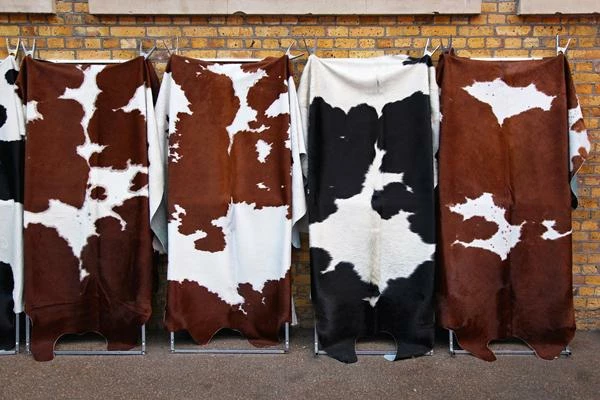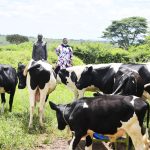Uganda possesses significant potential in hides and skins, resources that have historically been underutilized, resulting in substantial revenue losses amounting to billions. Despite this, the global leather market continues to thrive, with projections indicating substantial growth from $419.3 billion in 2021 to an estimated $708.7 billion by 2030, according to Acumen Research and Consultancy, a renowned provider of market research and consulting services.
The country’s vast livestock population, including 14.2 million cattle, 16 million goats, and 4.5 million sheep, as reported by the Ministry of Agriculture and Uganda Bureau of Statistics (UBOS) in 2018, positions Uganda favorably to capitalize on this lucrative market.
Dr. Patrick Ssekimpi, Chairman of the Dairy Farmers Network, highlights a prevailing issue where livestock farmers solely receive payment for meat, overlooking the value of hides and skins. This oversight has led to hides and skins being undervalued, with prices as low as shs00 per kilogram. However, with the establishment of the leather industry, farmers stand to increase their earnings by factoring in the value of hides and skins during animal sales.
The Uganda Leather Value Chain Strategy 2015-2025 underscores the importance of addressing the production of low-quality hides and skins, which fetch lower prices in international markets. High prevalence of pre-, peri-, and post-slaughter defects has resulted in over 60% of hides and skins being categorized as grade three or worse, contributing to revenue losses for the country.
Reports indicate a growing demand for finished leather products globally, with significant importations of footwear and exports of wet blue hides and skins. However, Uganda has missed opportunities for value addition, job creation, and foreign currency earnings, with over 95% of hides and skins exported in raw form.
To address these challenges and enhance Uganda’s earnings from hides and skins, President Yoweri Museveni launched the Kawumu Leather Industry Uganda in 2021. Located in Kawumu village, Luweero, the factory aims to add value to hides and skins, produce quality leather products, promote import substitution, and create employment opportunities.
Colonel Patrick B. Kihuta, CEO of Kawumu Leather Industry Uganda, emphasizes the importance of value addition and environmentally-conscious processes to produce high-quality leather and leather products. The initiative not only positions Uganda to compete in the global leather market but also provides employment opportunities, with plans to employ over 1,000 workers in the next five years.
Efforts are underway to upgrade the factory and expand its product line to include finished products such as shoes, bags, and jackets. The expansion strategy aligns with the “Buy Uganda, Build Uganda” (BUBU) policy and emphasizes market penetration and research and development.
In collaboration with the City Abattoir, initiatives are being implemented to train butchers on best practices to minimize damage to hides and skins during slaughtering and transportation. Additionally, stakeholders emphasize the need for collection centers to prevent wastage of hides and skins in rural areas.
Farmers express optimism about the potential impact of the leather industry, citing improvements in rearing systems, transportation, and animal treatment. They emphasize the importance of proper animal care to produce quality hides and skins.




















